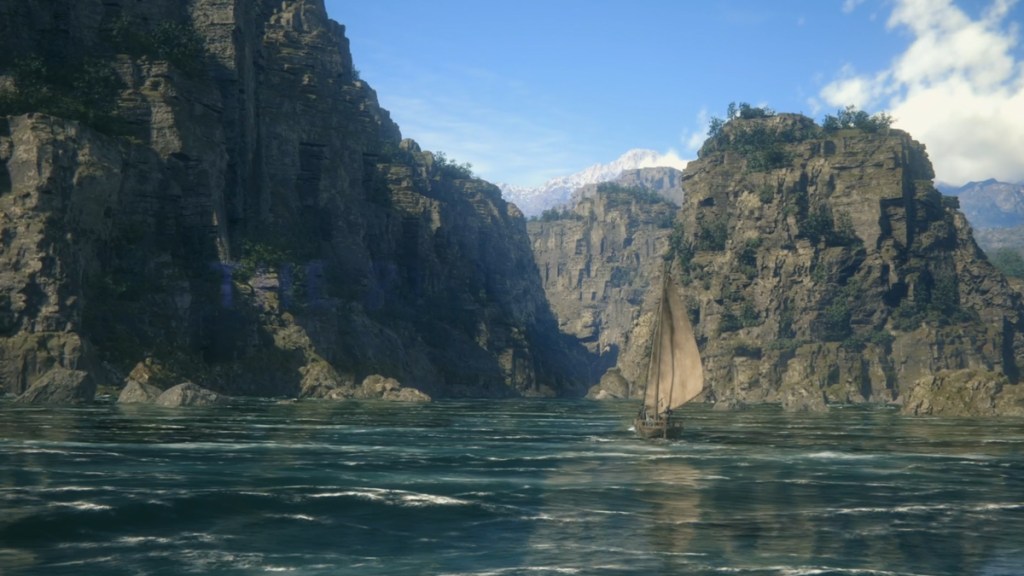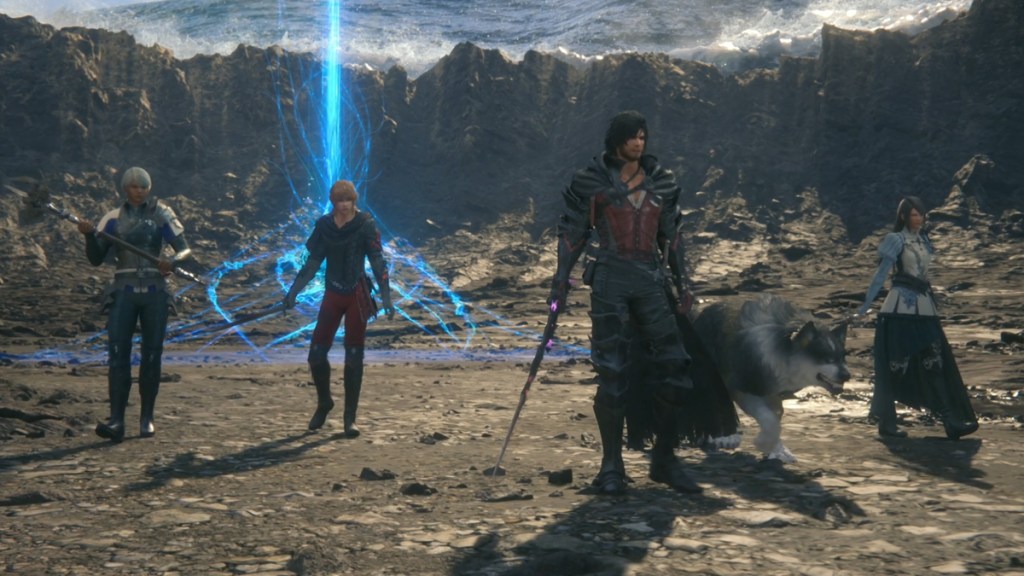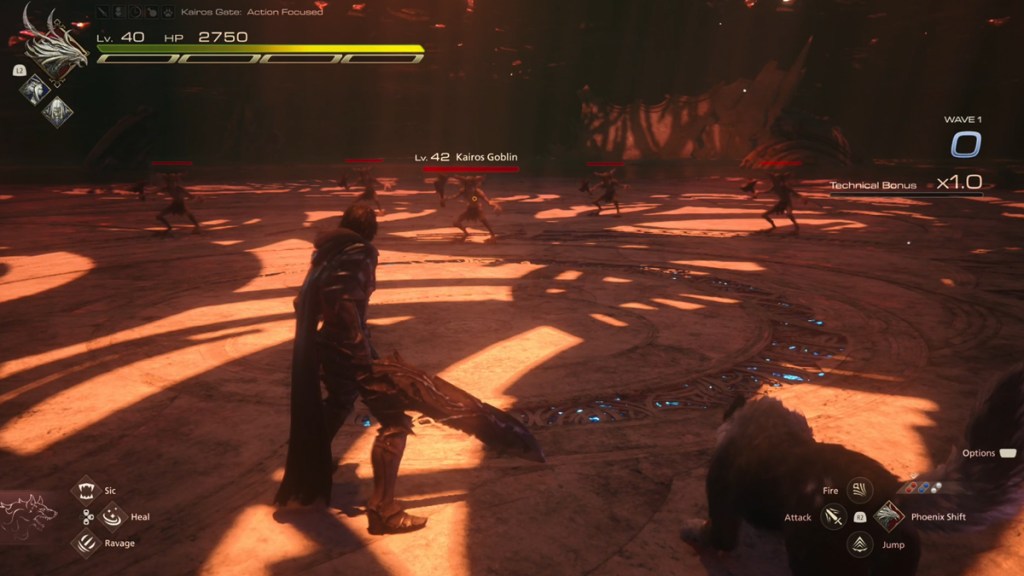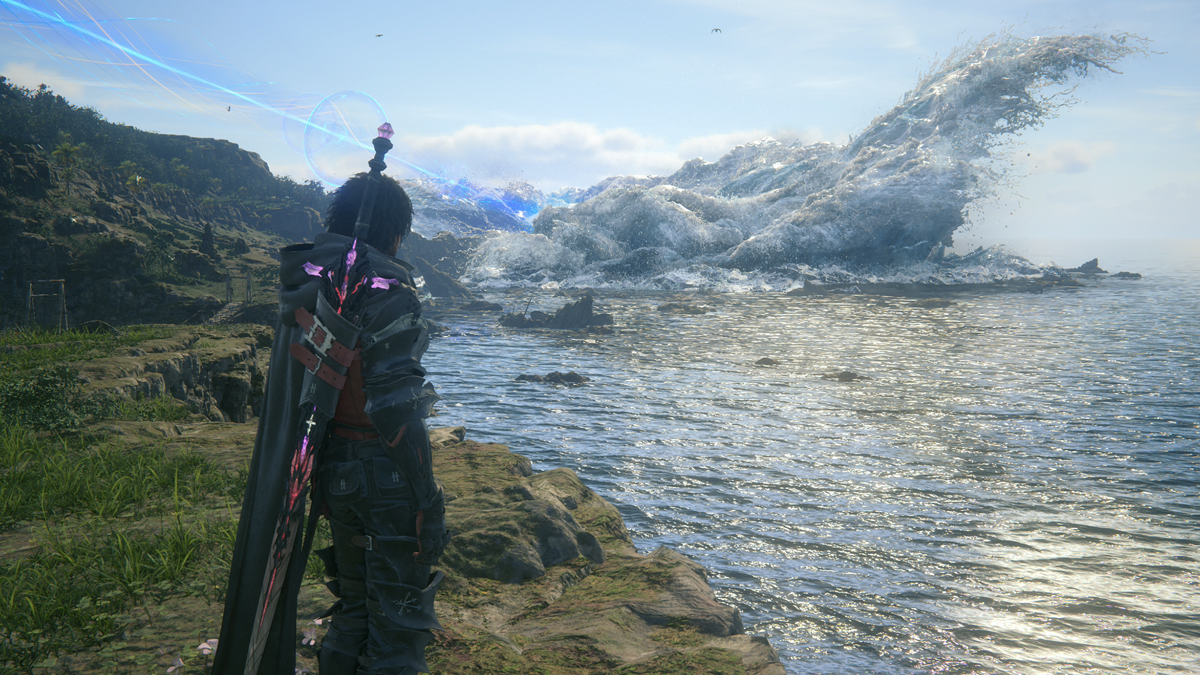Final Fantasy XVI was a standout in an already crowded year of gaming hits in 2023. It was one of the few titles in the series to have a Mature rating, but did so without putting in graphic content simply for the sake of doing so.
For me, it was that rare exception where I became interested in the politics and relationships of nations and their people. This might have been due to fight sequences between the colossal Eikons backing these nations, but that’s a minor detail.
In the ever-shifting world of gaming where many publishers are pushing for a title to be live-service or have an extended tail, it was nice to buy a game and genuinely believe that it was complete. Then, once other people realized how great Final Fantasy XVI was and it actually managed to meet Square Enix’s expectations, it was only natural to see DLC get announced.
The first, Echoes of the Fallen, was released on December 7, 2023, and while enjoyable, was rather meager when compared to the main game. The follow-up, The Rising Tide, was released on April 17, 2024, and promised to be much more substantive. With no further DLC planned at the moment of this writing, is Final Fantasy XVI going out on a high note?
Final Fantasy XVI: The Rising Tide (PS5)
Developer: Square Enix Creative Business Unit III
Publisher: Square Enix
Released: April 17, 2024
MSRP: $19.99
The only mention of Leviathan in the main story of Final Fantasy XVI is that the Eikon was lost ages ago until, upon purchasing the DLC, Clive receives a missive regarding the legendary sea serpent. Clive, Jill, Torgal, and Joshua head out to Northreach where they meet Shula, the Tributary of Mysidia. After hearing of Clive’s exploits against the other Eikons, she enlists the former’s help in dealing with the lost Leviathan.
Taking a sloop across the bay to the infamous Surge, we get the first taste of the magic fueling The Rising Tide. Mysidia has hidden itself for over a century by using a Glamour. This same magic that hides it also disperses the oppressive mauve sky that dominates the endgame of Final Fantasy XVI.
I had always hated the overcast sky of Valisthea gets in its endgame sprint, so to see the pure blue sky immediately lifted my spirits and reminded me of the unadulterated beauty that dominated a good chunk of the main story. Seeing the characters mirror my reaction made me realize how much the design department nailed it with that decision, no matter how I may have hated it.
What follows is another story of those in power abusing those who can channel aether for their benefit. Mysidia is a tiny village haunted by the sins of its past, and before you’re done there, you’ll have unraveled the lot of them. While it lacks the poignancy of other story beats in Final Fantasy XVI, it’s nonetheless an interesting take on the already interesting nature of Mothercrystals and aether.
The Rising Tide is a direct follow-up to Final Fantasy XVI‘s first DLC, Echoes of the Fallen, and places it firmly before the climactic confrontation between Clive and Ultima. Due to the structure of the story, its conclusion, and the epilogue, there’s no other place this second piece of DLC could fit, and that’s what leaves a subtle note of bitterness in an otherwise lovely dish.
While it was never ruled out, CBU 3 originally had no plans for Final Fantasy XVI DLC. It was shipped as a complete product, a finished story. Echoes of the Fallen was able to skirt this as it felt like a minor side adventure. The Rising Tide, however, is anything but, and it’s this grandness and connection with tidbits about Leviathan in the main game that make it feel shoehorned in, rather than flowing naturally.
The main story of Final Fantasy XVI is a dense and wonderful tale interwoven with complex relationships between characters, where learning about one typically leads to untangling the ball of yarn from which they are spun.
We see hints of this as the people of Mysidia have some defining aspects, namely white-gray hair and blue eyes, that are shared by leading lady Jill. Despite statements regarding Jill’s larger involvement in the DLC, that never feels like the case.
The entire time Clive, Jill, Torgal, and Joshua are roaming around Mysidia, I kept thinking Jill looks an awful lot like this lost tribe of people. Why is no one bringing this up? In fact, the only time that Jill is anything but a wallflower is when she points out a connection to another Eikon, Shiva. Clive then chimes in, saying he should have seen it too, and Jill slips back into the background.
I’m all for letting the audience figure things out, but in a story about orphans of war, slavery, and coming together, you would think somebody in-game would point out that Jill, a girl born in the Northern Territories, is likely a member of this lost clan.
Both Jill and the overall narrative felt primed for a much greater integration which never happened, which just distracted me from what was taking place on screen. But maybe that was the intention. Mysidia and its people are literally trapped in time, isolated from the rest of the world. It could be a metaphor for the DLC itself, as it too feels isolated.

I hadn’t touched Final Fantasy XVI since completing Echoes of the Fallen five months ago. Much like I did then, I had to shake off the rust and get acclimated to the action-oriented combat. There were two factors that both helped and hindered this process: my overly strong endgame Clive and the unbalanced nature of fights in The Rising Tide.
When it comes to the random mobs populating the forests and coasts of Mysidia, they’re an afterthought at best. Using my standard loadout of Phoenix, Shiva, and Ramuh, I could simply spam overpowered attacks to wipe out entire mobs in a few moves. This was fairly boring, so I began relying solely on sword combat, combos, and dodging. Even then, the fights weren’t difficult, and all I was doing was spending more time.
Things took a dramatic shift once I encountered the first boss, the Timekeeper. Much like the Sigma fight in Echoes of the Fallen, my hubris was mercilessly beaten from me as I quickly found myself on the ropes and spamming my dodge like a mouse evading a cat. Though I emerged victorious, the Timekeeper fight was the longest seven minutes of battle in recent memory. Again, it might be a meta-commentary on The Rising Tide as a whole, but time works differently when your animal brain takes over and all you’re trying to do is survive.
So, when I finish that fight and go back to effortlessly beating on random monsters, it’s like missing that bottom step on the stairs. It was a jarring experience that felt completely unbalanced. The Rising Tide is an endgame DLC that should take into account the tremendous power that Clive has obtained by then. I’m not saying that clearing mobs in the wild should be like fighting a Behemoth, but they should be a little more involved than me cycling through my three Eikons and using their ultimate attacks.
The balance issue was only exacerbated when the time finally came to square up against Leviathan. I was disappointed when Echoes of the Fallen didn’t include an Ifrit segment, so I was excited to have another Eikon to square up against. What I wasn’t expecting was an overly long fight consisting of five phases, with one demanding absolute perfection to clear.
To be fair, I hadn’t taken part in a fight with Ifrit in nine months, so I was having a real rough go with it. That being said, it was such an abrupt jump in difficulty that I was no longer engaged and instead, simply wanted to be done with it after starting over for the umpteenth time.

This is the part where I would normally say that to help Clive in this undertaking, he gets some new power sets. However, for the story content, it’s both largely unnecessary (the Timekeeper) and not applicable (Leviathan).
Clive gets access to two new Eikons, Leviathan and a secret additional Eikon. Leviathan was to be expected as Clive has a tendency to help himself to others’ Eikons, but the big bad straight up giving our protagonist his kit as a treat? I get that it’s meant to tempt Clive, but as a player, this just screams to me that the developer is personally giving me a gift.
The bonus Eikon is, as you might surmise, over the top. While we’re not discussing it in full, so as not to spoil it, it feels like a mix of Bahamut and Alexander, and grants Clive a ton of power.
The issue here, again, is placement. Giving these two power sets to Clive when players have likely already completed everything else in the game and don’t have anything meaningful to experiment with feels like a waste. They’re both highly mobile and powerful kits that have a tremendous synergy. Aside from doing an NG+ run, it feels like giving a bike to a kid who already has a car.

Oh, wait, forget everything in that last paragraph. Tucked away in the Arete Stone at the Hideaway is a new mode, Kairos Gate. This roguelite mode pits a level 40 Clive with a predetermined set of gear and no accessories against 20 increasingly difficult levels consisting of three waves, each with a boss fight against Dominants.
Completing each level will net players Enhancement Points and Boon Points, which are used to purchase permanent and temporary buffs, respectively. The number of points earned is based on the previous level’s score. To net a higher score, players will need to employ a variety of tactics while also racing against the clock.
It’s all very similar to the Bloody Palace mode in the Devil May Cry series, and serves as a great way for players to really push themselves. For me, it was tough enough to come up with a synergistic trio of Eikons that could get me through to the end. The scoring system is one geared towards style and variety, rather than brutal efficiency.
That said, players do get some pretty nice rewards for initial and repeated completions of each level. Beating each level for the first time will award either crafting components, accessories that buff the aforementioned secret Eikon’s abilities, or Radiant versions of each sword, plus Rhema, which can be sold for a tidy profit. Completing the Kairos Gate on Final Fantasy Mode will also award the necessary components to craft the Original Sin weapon, which has a mind-boggling 750 Attack Power and Stagger.
Kairos Gate isn’t a mode that will tide players over forever, nor is it meant to be. Rather, it serves as that final test of skill, much like hunting down the various Weapons in Final Fantasy VII and VIII.

The Rising Tide isn’t perfect, and that’s only evident when compared to the masterpiece that is the base game. Had that story not been so polished and neatly packed together, I would have no issues with putting this second DLC on a pedestal. However, this DLC was designed as a piece of the larger puzzle, but fails to fit in neatly due to its detached nature. It’s like making a dessert that spills over; it’s just as tasty, despite the overall appearance being slightly marred.
That being said, it’s still an enjoyable journey and adds plenty of playtime thanks to the multitude of cinematics, lengthy main story, and generous helping of sidequests. The Rising Tide is definitely a step up from the meager offerings of the boss rush mode that was Echoes of the Fallen. If you’ve been looking for a reason to return to Valisthea, this is it.









